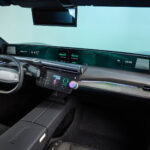German car makers are facing challenges in the Chinese market as the nation continues to prioritize its own domestic auto industry. The competition from Chinese car manufacturers has increased significantly in recent years, leading to a decline in market share for German brands.
Key Points:
- Chinese consumers are increasingly opting for domestic car brands over German imports.
- Government policies in China favor local car manufacturers, making it difficult for foreign companies to compete.
- German car makers are investing heavily in electric vehicles and autonomous driving technology to stay competitive in the Chinese market.
The preference for domestic car brands among Chinese consumers has been a major factor in the struggles faced by German car makers. While German cars were once seen as a status symbol in China, local brands have gained popularity in recent years, offering competitive pricing and features that appeal to Chinese consumers.
In addition to consumer preferences, government policies in China have also posed challenges for German car makers. The Chinese government has implemented policies that prioritize local car manufacturers, providing incentives and subsidies to promote domestic production. This has made it difficult for foreign companies to compete in the Chinese market.
To address these challenges, German car makers are investing heavily in electric vehicles and autonomous driving technology. These innovations are seen as key to staying competitive in the Chinese market, where there is a growing demand for environmentally friendly and technologically advanced vehicles.
Despite the challenges faced by German car makers in China, they remain committed to the market and are continuing to explore new strategies to regain market share. By focusing on innovation and adapting to changing consumer preferences, German car makers are working to overcome the obstacles in the Chinese market and secure their position as leaders in the global auto industry.






